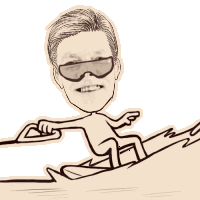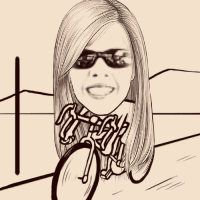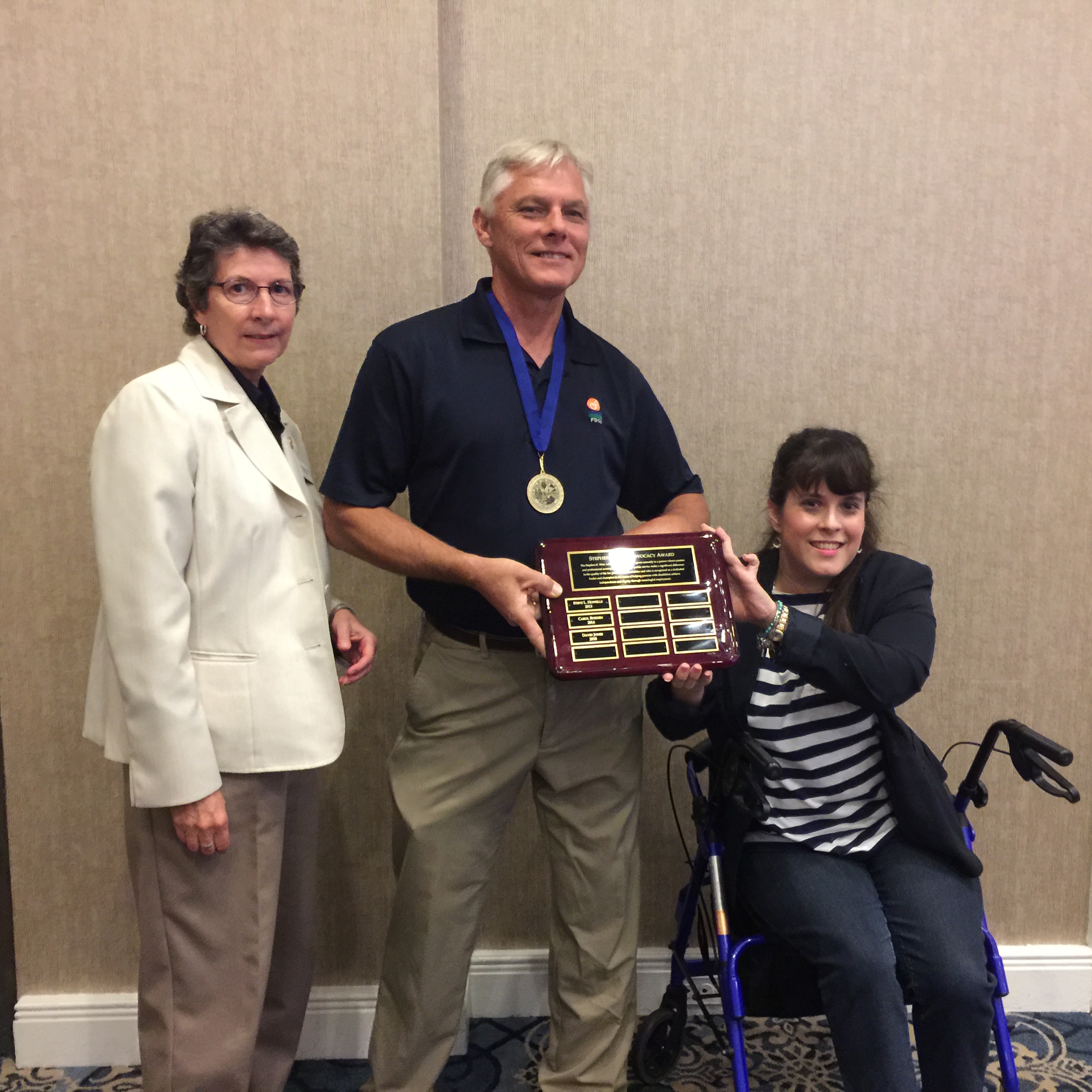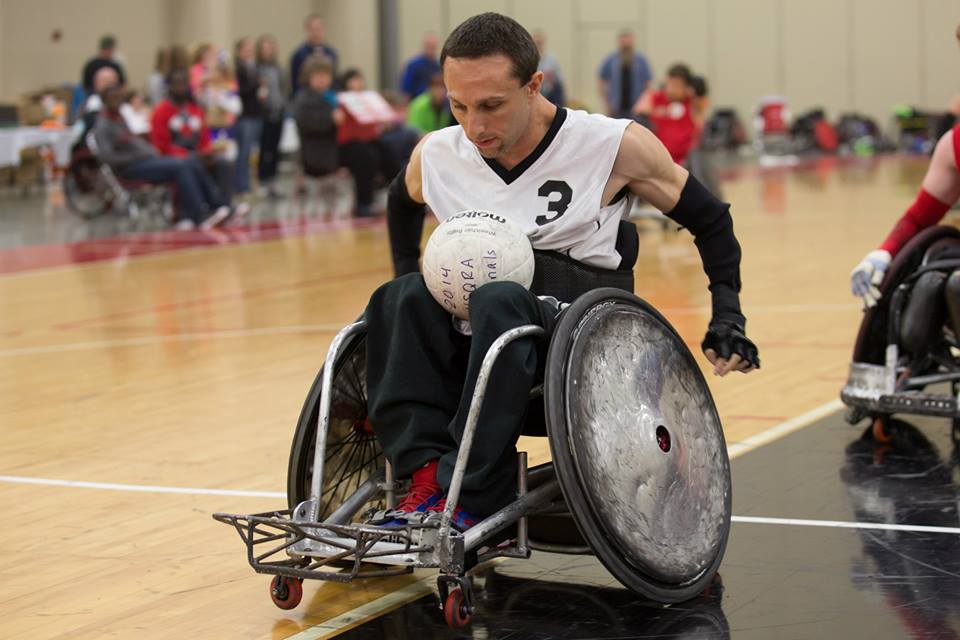 President's Message President's Message
Florida is a Mecca for outdoor recreation. As a native, I have been fortunate to have enjoyed many outdoor adventures that have been available for me, my family, and my friends over the years. Going to the beach, hunting, and fishing have been favorite activities of mine my whole life. It is no surprise that my favorite activities are also the top three identified for other Florida residents.
The Statewide Outdoor Recreation Plan (SCORP) compiles research and reports on outdoor recreation users - both residents and visitors. Department of Environmental Protection (DEP) facilitates this program for planning and guidance to meet our State needs and demands. Beaches and wildlife viewing, which includes hunting, and fishing are the top three outdoor activities in Florida.
The FDOA has been working for over twenty five years to promote and advocate for the health benefits of recreation and active leisure for all of our citizens. We embrace the diversity of people and of activities on our state’s recreation and conservation lands. We support and work to incorporate accessible and inclusive destinations and programs for outdoor recreation.
SCORP is required by the Federal government to include our eligibility for the land and waters conservation funding that is dedicated to enhance recreational opportunities. The top four priorities of Florida’s SCORP are:
1. Promoting health benefits
2. Improving public access
3. Promoting economic benefits and funding recreation programs
4. Reconnecting people to the outdoors
We are proposing a partnership for Florida Disabled Outdoors Association (FDOA) with DEP to help implement the goals and strategies of the SCORP. We are planning a pilot project to provide consulting and other services for the planning, development, and management of our state conservation lands and waters.
The first goal of this collaboration will be to enhance public access, diversity, inclusion, and Americans with Disabilities Act compliance. The second goal is to enhance health promotion efforts. The third goal is to promote outdoor recreation tourism and visit-ability.
We are proposing a collaborative effort between FDOA and DEP along with the representation from all seven of the agencies that receive state lands and waters trust funding, and establish participation of non-government organizations and other public recreation providers as well as other recreation stake holders. Our FDOA proposal is supported by section 258.004(3) of Florida statutes that directs DEP to assemble and disseminate information relative to recreation. This partnership will assist DEP to implement the goals and strategies of SCORP.
This FDOA project will coordinate outreach and activities to raise awareness, to provide education, motivation, resource referral, and supports to enhance active leisure on state lands and to promote accessible inclusive outdoor recreation.
ACTIVE LEISURE FOR LIFE!
What does it mean to be an advocate? I was recently selected the recipient of the Senator Stephen Wise Advocate of the Year by the Florida Rehabilitation Council. Thank you, FRC Chair Ann Robinson, and Council members for this recognition. First, let me say that being recognized by an award in the name of Senator Wise is quite an honor. Those of us that have been in the disability world for very many years know that Senator Wise was “the disability advocate” of our legislators. He has been carrying the torch of representation for people with disabilities. His advocacy protected our interest and has accomplished much in the way of progress in efforts to help those who most often do not have a voice in the direction that government takes in dealing with very important life issues concerning people with disabilities. Thank you Senator. Also thank you Dr. Janice Daly for your recommendation. Jan just retired from years of promoting better health with the FL Dept. of Health (DOH).
I received the email below today that really made me think about being an advocate of people with disabilities and the issues that I advocate for. It is really about quality of life, inclusion, and well-being. These are the very same things that everyone wants. I began my advocacy with my ambition to help myself through the rehab process and self-advocacy is a very important and much needed thing for people to do in rehab and in life, especially those with disabilities. As I developed and grew personally, my discoveries of life lead me to understand and appreciate the values and benefits of helping others in their pursuits of a better quality of life. Finding solutions to the issues of people with disabilities will take a continuous, long term, cross sector advocacy effort. This is the reason that I stay so involved with so many different sectors of society. Health, education, transportation, conservation, recreation, and employment are all areas that the FDOA works in to help people with disabilities and the people who follow to live in a better place. We need more advocates to step up and help us in our quest to help people with disabilities, families, and communities to enjoy a better quality of life. We all can be healthier, happier and more productive through active leisure advocacy.
Good morning David and Diane,
I wanted to thank you both for your time and investment in supporting UF Health Shands Rehab Hospital and our Gator Amps amputee support group. David, your presentations to our therapy staff and to our Gator Amps participants were outstanding! You are a genuine and authentic leader and ambassador for health, wellness, and thriving as an active individual! Thank you for sharing your personal story and linking the relevance of the FDOA’s mission and vision to our everyday practice as therapists and to everyday life to the clients we’re privileged to work with.
Several of our staff have already indicated a desire to volunteer for SportsAbility and I additionally shared the opportunity with the Student Occupational Therapy Association last night!
Please don’t hesitate to reach out and contact me if there’s anything I can do for either one of you J.
Becky Piazza, MS, OTR/L, Clinical Coordinator
UF Health Shands Rehab Hospital
 Executive Director's Message - FDOA President Receives Stephen R. Wise Advocacy Award! Executive Director's Message - FDOA President Receives Stephen R. Wise Advocacy Award!
 We were extremely honored when we heard that the Florida Rehabilitation Council (FRC) recently selected David C. Jones as the Steven R. Wise Advocacy Award winner for 2015. David Jones, founder and president of the Florida Disabled Outdoors Association, was chosen to honor Senator Wise, a distinguished leader and advocate for persons with disabilities. We were extremely honored when we heard that the Florida Rehabilitation Council (FRC) recently selected David C. Jones as the Steven R. Wise Advocacy Award winner for 2015. David Jones, founder and president of the Florida Disabled Outdoors Association, was chosen to honor Senator Wise, a distinguished leader and advocate for persons with disabilities.
According to the committee, David was selected for this award because, "Through personal experience, Jones became aware of the incredible value of recreation for rehabilitation and established the Florida Disabled Outdoors Association 25 years ago. The mission of the Florida Disabled Outdoors Association is to enrich lives through accessible, inclusive recreation for all. Jones learned how physical activity not only increased mobility, but also contributed to mental well-being, which leads to more successful employment outcomes. The Florida Disabled Outdoors Association sponsors several statewide projects that contribute to overall wellness – physical, mental, social, and vocational: Recreation Activity Program for Adults with Disabilities, ALLOUT Adventure Program, Miracle Sports, Community-Based Therapeutic Recreation for People with a Brain or Spinal Cord Injury, and SportsAbility. Information about these projects and a Resource Referral Network of accessible inclusive programs and services, products, destinations, and events are available on the website, www.fdoa.org, which now features information in Spanish. Jones has also offered assistance with Americans with Disabilities Act compliance and training projects for many state, local, and private organizations."
Please help us congratulate David on this prestigious award!!
 Wheelchair Rugby: A Competitive Sport for People with a Spinal Cord Injury or Other Disability Wheelchair Rugby: A Competitive Sport for People with a Spinal Cord Injury or Other Disability
Wheelchair Rugby is a mixed team sport for male and female athletes. A unique sport created by athletes with a disability, it combines elements of rugby, basketball and handball. Players compete in teams of four to carry the ball across the opposing team's goal line. Contact between wheelchairs is permitted, and is in fact an integral part of the sport as players use their chairs to block and hold opponents. Wheelchair Rugby players compete in manual wheelchairs specifically designed for the sport. Players must meet minimum disability criteria and be classifiable under the sport classification rules.
Justin Stark of Tampa, Florida a wheel chair rugby player for 19 years, was introduced to rugby after an accident had left him with a spinal cord injury. Wheelchair rugby was an option for his rehabilitation so he figured why not? Shortly after joining a team he realized several positive outcomes of being involved in rugby. One was the physical activity that you put your body through on a weekly basis while training and competing. “You really learn to move your body in ways you have never had to before plus add the weight of the chair and you have one heck of an exercise,” stated Justin.
Aside from the physical activity he received, Justin attributes wheelchair rugby to helping him become more sociable. Training with individuals dealing with the same issues as you really allows you to open up and discuss things that you might not discuss with people who you felt you couldn’t relate to. The last thing Justin mentioned was competition; he felt that having a chance to be a winner by beating another team was a big motivation in continuing to play. According to Justin, “This isn’t one of those games where everybody is a winner. There are two teams competing against each other to achieve a victory there will be one winner and one loser and everybody is trying to be the victor.” This sense of competitiveness really helps the athletes feel like they are playing sports like they were before there injury.
This sport is continuing to grow and the competition is getting better. Not only are the competitors getting better, the sport itself is becoming better. The sport has opened up from in the past only people with spinal cord injuries to now allowing people with various types of disabilities to compete. There is also a new classification system in place that includes women which helps categorize the different levels of competition being played. This new classification has helped encourage more women to come out and participate. Justin’s message to individuals with a disability is, “You should open your mind to trying new things. Even if you don’t like it, you still are becoming active. If Wheelchair rugby isn’t your thing, still get involved. You never know what doors might open from it.”More information for People with a Spinal Cord Injury:
English / Spanish
More information for People with a Brain Injury:
English / Spanish
Applying for Social Security Disability Benefits in Florida
If you are have a disability and can no longer work, you know first-hand how difficult it can be to pay rent, bills, and afford healthcare. Due to the financial hardships that all too often come with a disability diagnosis, the Social Security Administration (SSA) offers benefits for people who are unable to work.
What are Disability Benefits?
Social Security disability benefits are a monthly financial resource that is deposited electronically into a recipient’s bank account. These payments can be used for paying for your residence, bills such as utilities or cable, and assistive technology, such as a wheelchair or modifications to your home. There are two main forms of disability benefits offered by the SSA. Qualifying medically is the same between the programs, but each has specific technical qualifications.
Social Security Disability Insurance, or SSDI, is the larger of the two programs. It is for adults only, and to qualify, an adult must have worked and paid taxes throughout his or her life. This is because taxpayers fund SSDI benefits. Those who did not contribute to the system will not be eligible for benefits.
Your monthly SSDI benefit will be calculated based on how much you earned while working, with higher income workers receiving more. The average SSDI payment is around $1,100, while the absolute maximum is $2,663. There is a calculator to help you estimate how much you could earn if you qualify for SSDI benefits. SSDI recipients will receive Medicare benefits 24 months after their disability began.
The second form of Social Security disability benefits is known as Supplemental Security Income, or SSI. SSI is for people of all ages, meaning that children can qualify too. To be eligible for SSI benefits, an applicant must have a low income or low resources. This means that if you have saved a significant amount of money throughout your life, or if you are married to a high-earning spouse, you will not qualify for SSI benefits.
The SSA will also look at your possessions when evaluating your SSI case. You cannot own more than $2,000 in assets, or $3,000 in assets if married. Assets include cash, stocks, life insurance, and other valuable possessions. One home and one primary vehicle will NOT count towards your asset limit. In Florida, the SSA also controls Medicaid, meaning that Florida SSI recipients are automatically enrolled in Medicaid.
How Do I Qualify Medically?
Regardless of whether you apply for SSDI or SSI benefits, the SSA will evaluate your claim with their medical guide known as the Blue Book. The Blue Book lists hundreds of disabilities that potentially qualify for benefits, as well as the symptoms or test results that are necessary for an applicant to qualify. The entire Blue Book is available online.
If you have a very rare disability, chances are that you will not be able to meet a listing in the Blue Book. In this case, you will be evaluated through a Residual Functional Capacity (RFC) analysis. This is a detailed questionnaire that looks at your ability to preform any work, such as your capability to sit or stand for extended periods of time, lift or push weight, or preform daily activities like preparing food or getting dressed. If your RFC analysis shows that you are unable to preform even sedentary work, you could be approved medically for benefits.
What Are My Limitations While on Disability Benefits?
The SSA understands that some days are better than others, and that many Social Security recipients are able to partake in fun or sporting activities. The SSA does not expect most of its disability applicants to be confined to bed rest. If you are receiving disability benefits, you will still be able to partake in activities that do not affect your disability or contradict any physical movement you claimed you were incapable of preforming.
For example, if you won benefits due to paralysis and you are unable to move from the legs down, it would be fine to go kayaking, because you only need to use your arms to propel the kayak. If you went kayaking and were approved for back pain and rheumatoid arthritis, however, this could look suspicious to the SSA.
You are also able to volunteer while on disability benefits, but only for a short amount of time. Serving food to the homeless on Saturdays would be fine, but if you were volunteering 20+ hours a week at a call center or other business that would pay other employees for similar work, you could jeopardize your benefits.
How Do I Apply For Benefits?
Regardless of whether you are applying for SSDI or SSI benefits, the first stop for any potential disability applicant should be the SSA’s website. It will contain information on all the necessary information you will need to apply, from required documents such as birth certificates, to what medical tests are required to qualify with your specific disability. Less than one of three Florida applicants are approved initially, but there is an appeals process available. The first step would be to simply file for reconsideration on the SSA’s website.
If you are applying for SSDI benefits, you can complete the entire application online. Be sure to be as thorough as possible when filing the application online, as many applicants are denied due to a lack of medical evidence. SSI applicants can start the application online, but must complete the application in person at their local SSA office. Florida has more than 50 offices, so you should be able to find one nearby.
Help Support FDOA Programs - Donate Now
FDOA gratefully accepts tax deductible donations and in-kind gifts as a 501 (c)(3) nonprofit organization. (Federal ID# 59-3051552)
|